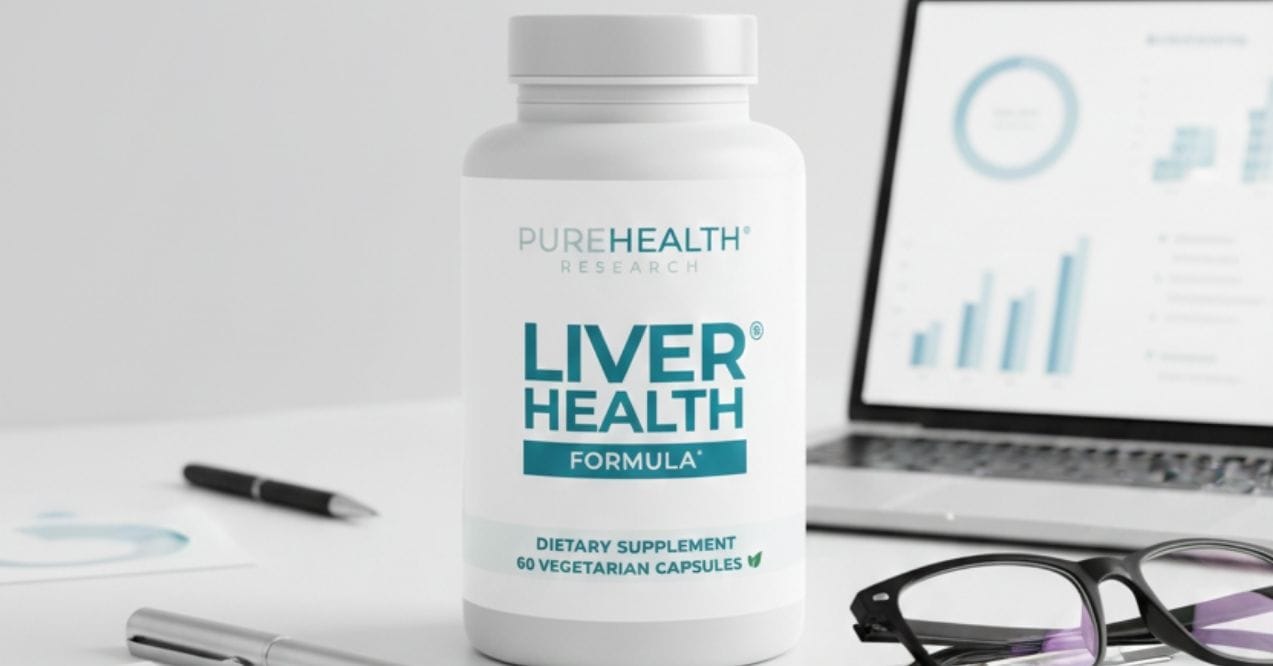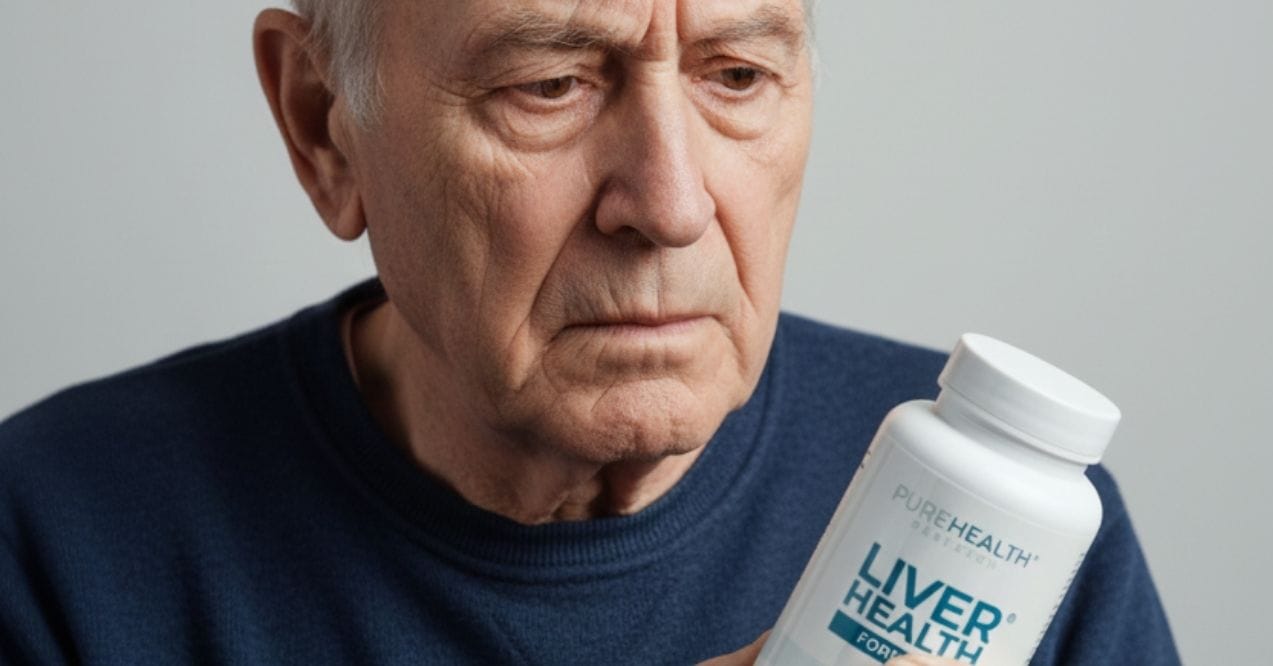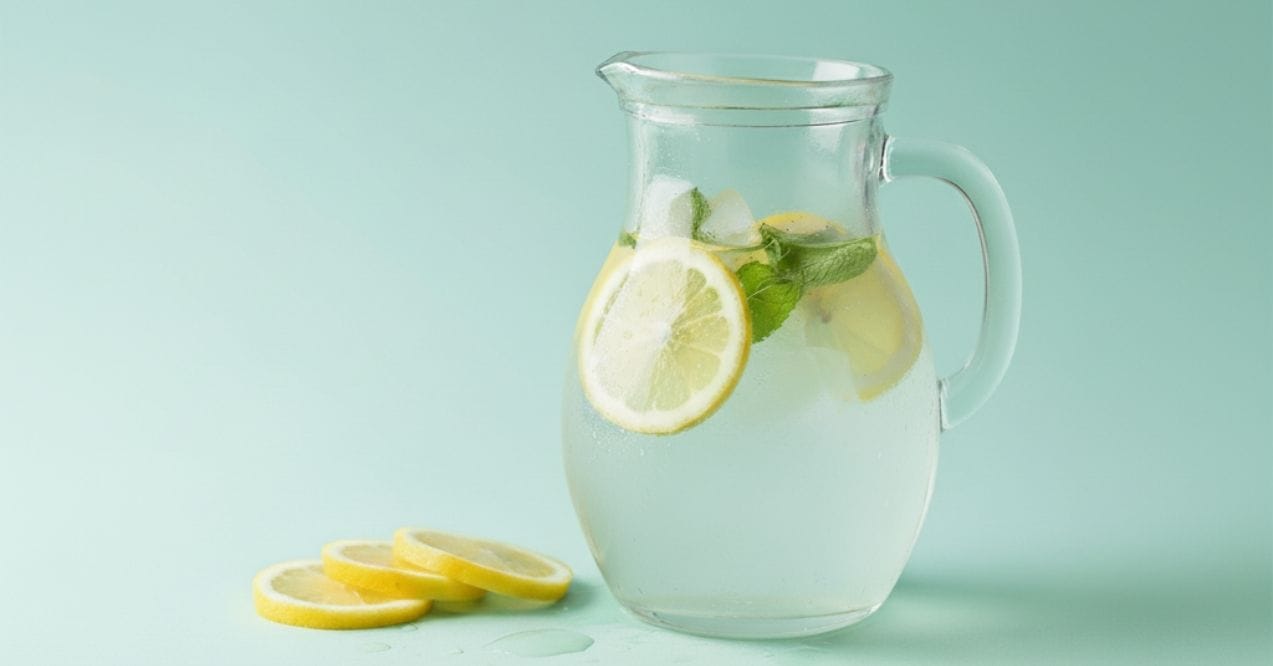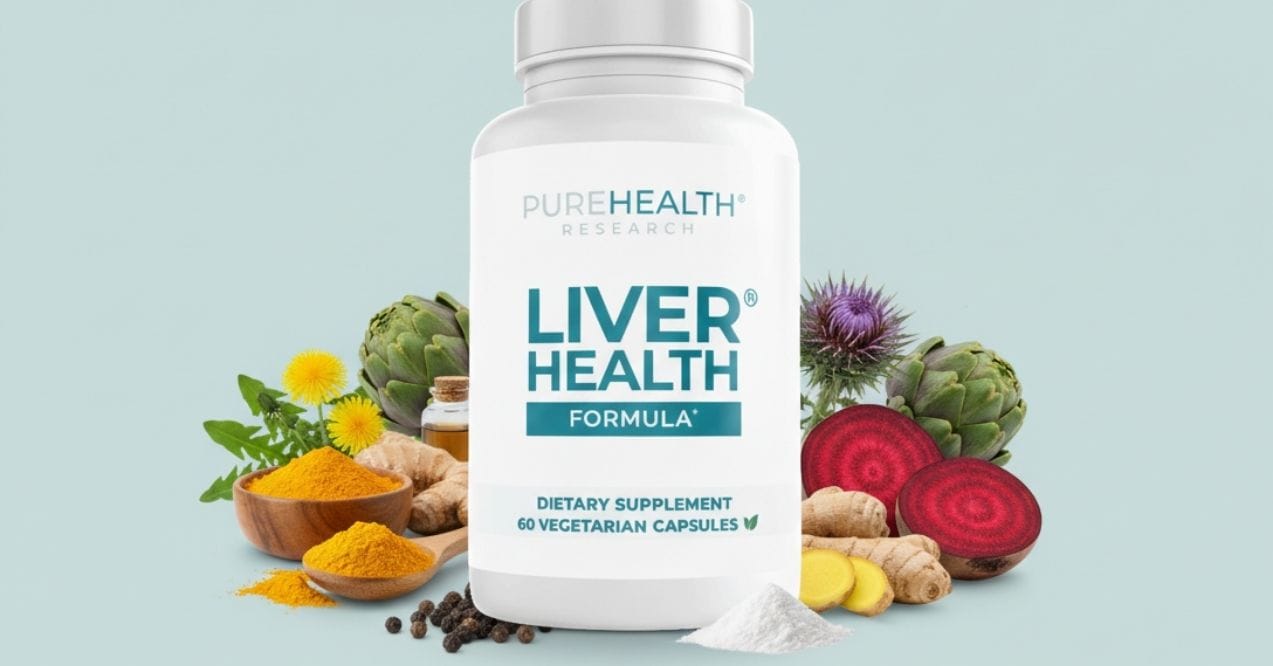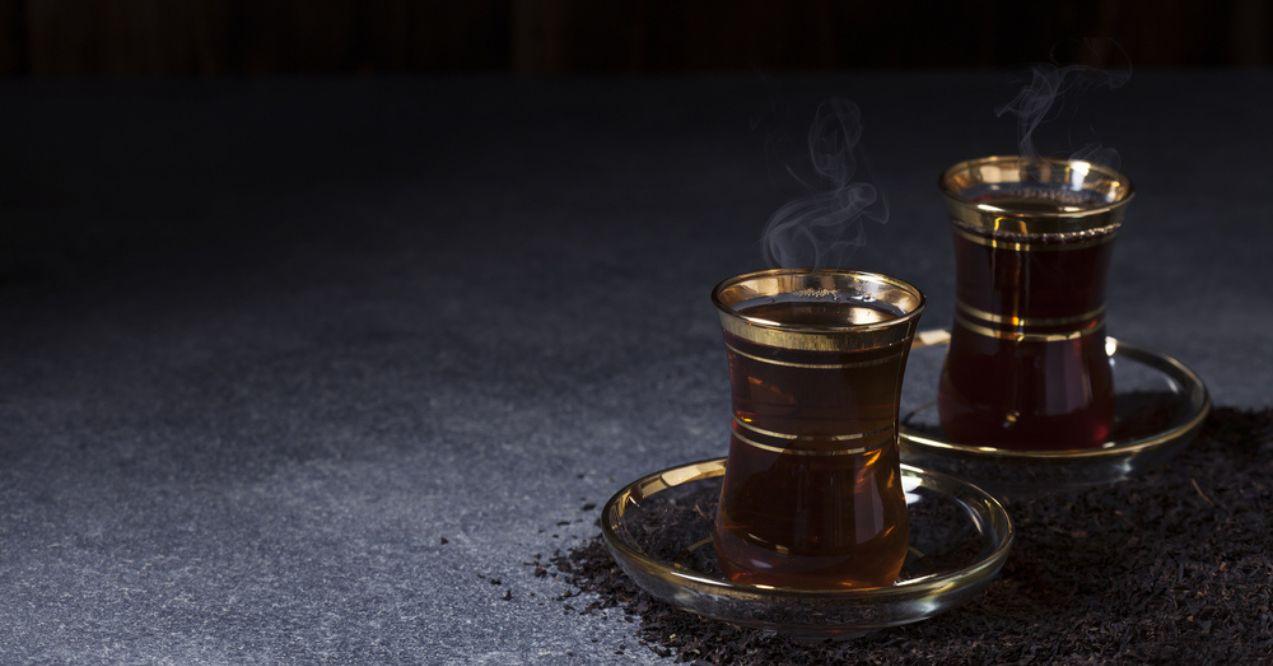How to Make Your Liver Healthy Again
Feeling sluggish or "off"? It might be a sign your liver is under strain. The good news is, your liver can heal itself. This guide will show you simple steps to support your liver's health and get your energy back.
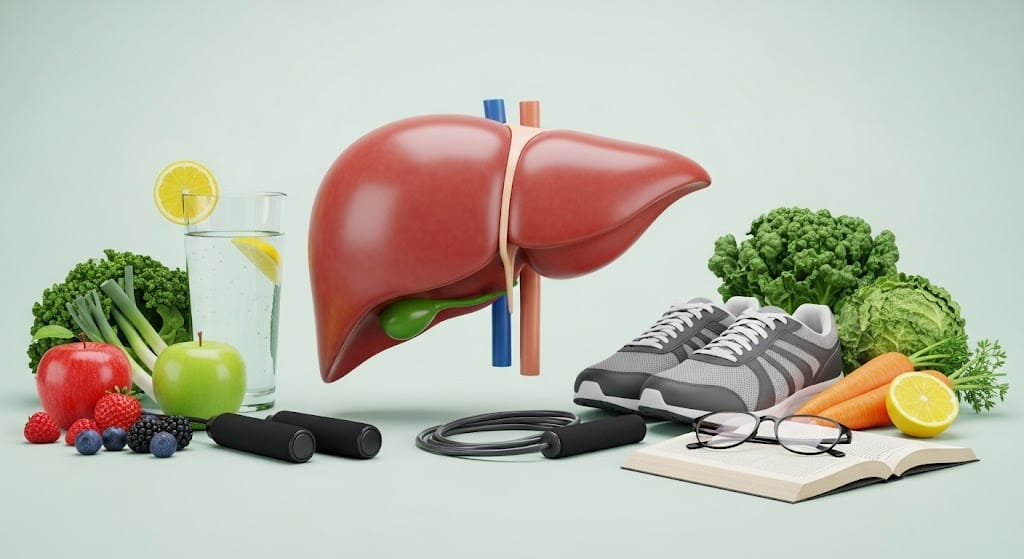

Your liver plays a vital role in your overall health. It filters toxins, stores nutrients, and regulates many of your body’s most important processes. But everyday stressors like diet and lifestyle can put a major strain on it. The good news? Your liver can heal itself.
In this guide, we’ll show you how to make your liver healthy again with a simple, at-home approach. From recognizing early signs of strain to making easy lifestyle changes, you can take control of your liver’s health.
How Liver Keeps You Healthy
The liver is one of your body’s most important organs. It acts as your internal filter, tirelessly working to keep you healthy.
Here are main functions of the liver:
- It processes and neutralizes toxins from food, drinks, and the environment.
- It produces bile, which helps you digest and absorb fats.
- It stores important vitamins and minerals, releasing them when your body needs them.
- It helps regulate your energy levels and blood sugar (metabolism).
When your liver is unhealthy, it can impact your immune system, hormonal balance, digestion, heart health, and even your mental clarity. Supporting your liver means supporting your whole body.
Step 1. Recognize Signs of Liver Damage
Recognizing the warning signs of liver damage can be challenging because symptoms often don’t appear until the disease has progressed to an advanced stage.
How to tell if you have liver problems? We will separate sluggish liver symptoms in early and advanced:
Early symptoms
In the initial stages, liver damage, such as from fatty liver disease or early cirrhosis, may not cause any noticeable symptoms. When symptoms do appear, they can be easily mistaken for other health issues.
- Feeling constantly tired, even after a full night’s sleep.
- Bloating or an uncomfortable feeling after meals.
- Sudden, unexplained weight gain or loss.
- Chronic itching, especially on your hands and feet.
- Dark urine or light-colored stool.
Advanced symptoms
As liver damage progresses, more distinct and serious symptoms may emerge. These are often indicators of significant scarring (cirrhosis) or liver failure.
- Jaundice (yellowing of the skin and eyes).
- Easy bruising or bleeding.
- Severe abdominal swelling (ascites).
- Swelling in the ankles and legs (edema).
- Mental confusion or “brain fog”
- Vomiting blood.
- Presence of spider-like blood vessels on the skin.
Early detection of liver damage can significantly improve treatment outcomes and may even allow for the reversal of some of the damage. Do not self-diagnose and always seek medical advice for a proper diagnosis and treatment plan.
Step 2. Remove Liver Stressors
The next step in promoting a healthy liver is removing the things that can damage it over time. Many factors, such as diet, toxins, and medications, can put extra strain on your liver. If you’re looking for ways how to lower liver enzymes, consider avoiding these stressors.
2.1. Harmful Foods and Drinks
Understanding what foods can damage your liver is essential for protecting and maintaining its health. Here are some common harmful foods and beverages that can negatively affect liver health:
| Category | Foods / drinks | Impact on the liver |
|---|---|---|
| High-sugar foods | Soda, candy, pastries, sweetened cereals | High sugar intake, especially refined sugars, can lead to fat buildup in the liver, contributing to fatty liver disease. |
| Processed foods | Fast food, packaged snacks, frozen meals | Foods high in unhealthy fats, salt, and artificial ingredients can increase inflammation in liver. |
| Excessive alcohol | Beer, wine, liquor, cocktails | Drinking alcohol regularly in high amounts can cause liver inflammation, scarring, and make it hard to process toxins efficiently. |
2.2. Toxins
Your liver filters toxins, but too much exposure can overwhelm it. Common toxins include:
- Household chemicals like cleaning products, air fresheners, and pesticides contain harmful chemicals that can enter your body through inhalation or skin contact.
- Pollutants from air pollution and environmental toxins are present in many urban areas and can affect your liver’s detoxifying capabilities.
- Job-related hazards can expose workers to harmful substances, such as solvents, heavy metals, and pesticides, which can stress the liver.
2.3. Medications
Some medicines can also strain your liver, especially if used too much. Be aware of:
- Taking high doses of medications (especially prescriptiption drugs) or using them for prolonged periods can lead to liver damage over time.
- Some herbal supplements, especially those that are not scientifically backed, can contain ingredients that are hard on the liver.
By cutting back on these stressors, you can lighten your liver’s load and help it work at its best.
Step 3. Adopt “Healthy Liver” Habits
A healthy lifestyle is the single best way to improve liver function and protect it from harm. By making a few informed choices, you can support your liver’s natural ability to detoxify and regenerate itself. Here’s what to focus on.
3.1. Eat the Rainbow
Think of your liver as the engine of your body. What you eat is its fuel. A diet rich in whole, nutrient-dense foods gives it the building blocks it needs to thrive. Including a variety of colorful whole foods in your meals ensures you’re getting the vitamins, minerals, and antioxidants necessary for optimal liver function.
If you’re wondering what foods clean out your liver, here’s a guide to certain foods that can also be included in 7-day liver cleanse diet:
| Food category | Food examples | Benefits for the liver |
|---|---|---|
| Leafy greens | Kale, spinach, broccoli, collard greens, arugula | Packed with chlorophyll, a compound that helps neutralize toxins. They are a core part of any liver-friendly diet. |
| Cruciferous vegetables | Broccoli, cauliflower, brussels sprouts | Contain sulforaphane and fiber that support the liver’s detox pathways, helping it process harmful chemicals more efficiently. |
| Citrus fruits | Lemons, grapefruits | Vitamin C and antioxidants help the liver produce detoxifying enzymes. |
| Berries | Blueberries, strawberries, raspberries | Antioxidants in berries protect liver cells from damage caused by inflammation. |
| Garlic and onions | Garlic, onions, leeks | Sulfur compounds in garlic and onionst activate liver enzymes, helping to flush out toxins. |
| Healthy fats | Avocados, olive oil, nuts | These fats reduce inflammation and support the liver’s overall function. |
| Lean proteins | Fish, tofu, beans | Protein is essential for liver regeneration. Your liver needs amino acids to rebuild itself and produce detox enzymes. |
| Herbs and spices | Turmeric, ginger, cinnamon | These are powerful anti-inflammatory agents that can help calm an overworked liver. |
Aim for a “rainbow” on your plate every day. The more colors you eat, the wider the range of vitamins and antioxidants you’ll get to support your liver.
3.2. Hydrate Your Body
Water is the lifeblood of your liver. Without enough of it, your liver’s filtering process slows down. Think of it as flushing out the system.
Here are the best drinks to detox your liver, promote digestion and reduce inflammation:
| Drink type | Benefits for the liver | How much to drink |
|---|---|---|
| Water | Helps flush out waste and supports the liver’s filtering process. | Carry a reusable bottle and aim for 8-10 glasses a day. |
| Lemon water | Lemon water in the morning stimulates bile production. | Drink 1 glass first thing in the morning. |
| Herbal teas (Dandelion root, milk thistle, green tea) | Certain teas are rich in antioxidants, which help reduce inflammation. | Drink 1-2 cups daily. |
| Natural juices (Beet, carrot) | Fresh juices made from lemon, grapefruit, or beets provide vitamins and minerals that help the liver neutralize and expel toxins. | Drink 1 glass daily (preferably fresh) |
3.3. Get Active
Incorporating regular physical activity into your routine is one of the best ways to improve liver function. Studies show that consistent exercise offers numerous benefits that directly improve liver health, including:
- Exercise is proven to decrease liver fat. This can prevent fatty liver disease.
- When you move, you improve blood flow and circulation. This means more oxygen and nutrients are delivered to your liver, helping it work more efficiently.
- Exercise supports metabolic regulation, which is vital for maintaining healthy liver function. By improving the body’s ability to process sugars and fats, you can prevent liver conditions related to poor metabolism.
- Regular exercise helps increase insulin sensitivity, which can prevent the buildup of fat in the liver and reduce the risk of developing non-alcoholic fatty liver disease (NAFLD).
A tip! You don’t need a gym membership. Start with a 30-minute brisk walk, five days a week. It’s one of the easiest and most effective ways to support your liver.
3.4. Manage Stress
Can stress cause liver problems e.g. elevated enzymes? Absolutely. When you’re under chronic stress, your body releases hormones like cortisol. Over time, high cortisol levels can trigger inflammation and increase liver enzymes, signaling strain.
To support your liver aim to add stress-relieving practices:
- Deep breathing. Just 5 minutes of focused breathing can lower cortisol.
- Mindful movement like yoga or tai chi to calm your mind and move your body.
- Time in the nature. Spend time outdoors to reduce stress and boost your mood.
3.5. Consider Targeted Supplements
In addition to a healthy lifestyle, certain supplements can give your liver extra support. Below we added a list of the most popular ingredients that support liver health:
| Supplement ingredient | Benefit for the liver | Notes |
|---|---|---|
| Milk Thistle | Protects and helps regenerate liver cells. | Contains silymarin, an antioxidant that protects liver cells from damage. |
| Turmeric | Reduces liver inflammation and promotes detoxification. | The active compound, curcumin, is a strong anti-inflammatory. |
| Dandelion Root | Promotes bile production and improves liver function. | Acts as a mild diuretic, helping the liver and kidneys flush out toxins. |
| Artichoke Extract | Stimulates bile production, aiding digestion. | This helps your body break down fats and reduces the workload on your liver. |
| Alpha-Lipoic Acid | Helps neutralize free radicals and reduce inflammation. | A potent antioxidant that can help regenerate other antioxidants in the body. |
These supplements offer various forms of antioxidant and anti-inflammatory support that can enhance your liver’s ability to process and eliminate toxins. While Milk Thistle and Turmeric are the most well-known liver supplements, others like Camu Camu fruit helps liver too by supporting detoxification and reducing inflammation through its high vitamin C content.
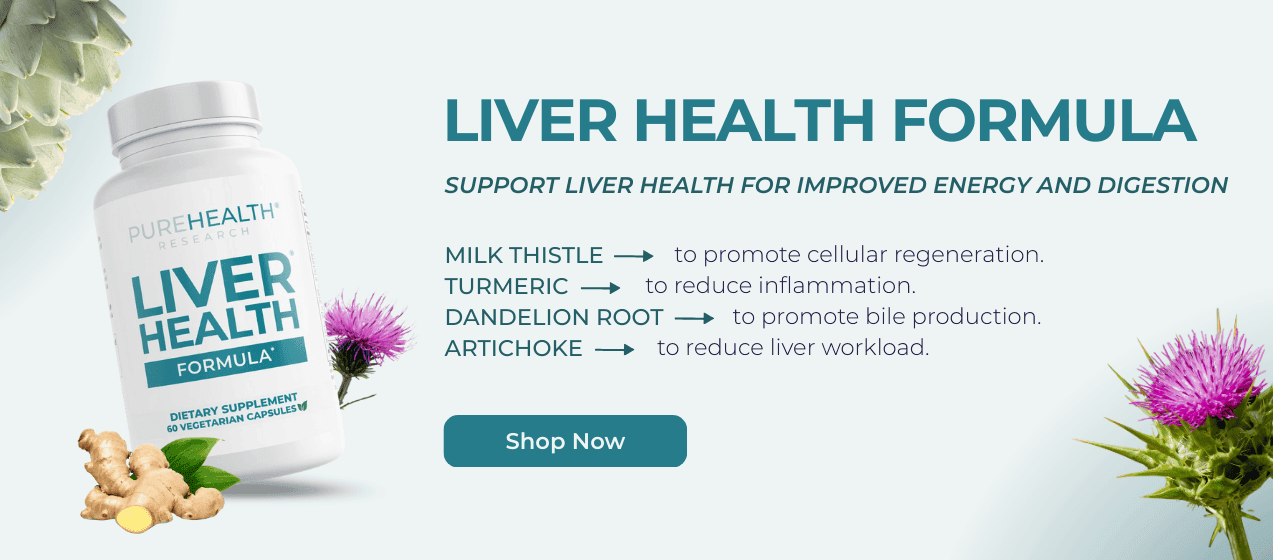
Step 4. Additional Habits
Supporting your liver goes beyond what you eat and how much you exercise. Several other practices can enhance its function and natural detoxification process. These simple strategies offer powerful support for a healthy liver.
4.1. Sleep 7-8 Hours
Sleep is crucial for your liver. Research shows its regenerative processes are most active while you rest. Poor sleep can disrupt your metabolism, raise inflammation, and increase fat in your liver. Aim for 7–9 hours of quality sleep each night to help your liver work efficiently.
4.2. Consider Sauna
Does using a sauna help detox your liver? The answer is yes. Regular sauna use can support your body’s natural elimination pathways, helping your liver’s detoxification role. Sweating helps remove heavy metals and other compounds that the liver processes. Over time, this can lead to healthier metabolic function.
To add, heat exposure also stimulates the cardiovascular system, promotes sweating, and may help reduce oxidative stress in the body. Over time, these effects can contribute to healthier metabolic function and better heart health.
4.3. Drinking Coffee
Moderate coffee consumption has been linked to better liver enzyme levels and a reduced risk of liver scarring. Antioxidants in coffee fight oxidative stress, and its anti-inflammatory compounds help keep liver tissue healthy.
Research shows that 1–2 cups per day can be beneficial for most adults. However, balance is important, as excessive caffeine intake may cause other health issues.
4.4. Healthy Body Weight
Excess body fat, especially around your abdomen, can cause inflammation and fat buildup in the liver. This can impair its ability to process nutrients and remove toxins. Reducing body fat through a balanced diet and regular exercise is linked to improved liver enzyme levels and reduced liver fat.
4.5. Keeping Your Hands Clean
Good hygiene is a simple but overlooked habit for liver health. Pathogens and toxins from contaminated food or water increase your liver’s workload as it filters harmful substances from your bloodstream.
Washing your hands thoroughly before eating or preparing food reduces exposure to these contaminants, preventing unnecessary strain on your liver’s systems.
Step 5. Monitor Your Progress
As you take steps to improve your liver health, it’s important to monitor your progress to ensure your efforts are paying off. Recognizing the signs of liver detox working can help you stay motivated and track improvements.
The liver is a resilient organ, and even small positive changes can indicate that your detox and lifestyle adjustments are having a beneficial effect. Here are some signs that your liver is healing:
- Increased energy
- Improved digestion
- Clearer skin
- Better sleep
- Balanced mood
- Stable weight
Step 6. Talk to a Doctor
While lifestyle changes can significantly improve liver health, it’s important to seek professional guidance if you have certain risk factors or concerns about your liver function. Early detection and professional evaluation are crucial, as some liver conditions may not present noticeable symptoms in the early stages.
Consider consulting a healthcare provider if you have any of the following risk factors:
- Heavy alcohol use
- Family history of liver disease
- Hepatitis exposure
- Abnormal liver test results
- Chronic conditions
It’s important to know that some people may not experience any symptoms in the early stages of liver dysfunction, which is why regular check-ups and blood tests are crucial for maintaining liver health.
Step 7. Get Vaccinated
In addition to regular check-ups, getting vaccinated can help protect your liver from certain viral infections that can lead to liver damage. Vaccines are available for Hepatitis A and Hepatitis B, both of which can cause serious liver conditions. If you’re at risk for exposure, talk to your healthcare provider about getting vaccinated to protect your liver from preventable infections.
Conclusion
Your liver is a remarkably resilient organ. By consistently making small, positive changes you can significantly support its natural ability to heal. Taking control of your liver health isn’t just about avoiding illness; it’s about reclaiming your energy and vitality. Start today, and you’ll be on your way to a healthier, more vibrant you.
Common signs of liver damage include fatigue, digestive discomfort, mild jaundice (yellowing of skin/eyes), and changes in urine or stool color. Recognizing these symptoms early can help take preventive steps for liver health.
A balanced diet rich in antioxidants, regular physical activity, hydration, and stress management can naturally improve liver function. Liver-friendly foods like leafy greens, fruits, and lean proteins support detoxification and overall liver health.
Foods such as leafy greens, berries, garlic, turmeric, and healthy fats (e.g., olive oil) support liver detox. Whole grains, vegetables, and lean proteins also contribute to liver health by providing essential nutrients for detoxification.
Yes, chronic stress can elevate liver enzymes, indicating strain on the liver. Stress hormones like cortisol may disrupt liver function and detoxification, making stress management essential for maintaining healthy liver enzyme levels and overall liver health.
Supplements like milk thistle, turmeric, and Camu Camu fruit support liver health by reducing inflammation and promoting detoxification. Always consult a healthcare provider before starting new supplements to ensure they are safe and effective for liver support.
Sign up for our Healthy Living newsletter!
Advertisement. This site offers health, wellness, fitness and nutritional information and is designed for educational purposes only. You should not rely on this information as a substitute for, nor does it replace, professional medical advice, diagnosis, or treatment. If you have any concerns or questions about your health, you should always consult with a physician or other health-care professional. Do not disregard, avoid or delay obtaining medical or health related advice from your health-care professional because of something you may have read on this site. The use of any information provided on this site is solely at your own risk.




